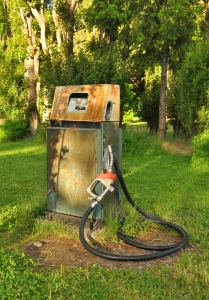In early 2014 I wrote an article that explores a way in which many state and local tax “SALT” professionals advise their clients to save on state and local tax. The issue is a common one for real property improvement contractors. Specifically companies that sell real property improvements to governments or other tax exempt entities, there is a real incentive to save on high sales tax rates. What if instead of selling a real property improvement, the company separated itself into two separate legal entities. Company 1 could sell tangible personal property, tax free, to the tax exempt entity/governmental entity. Company 2 could install the tangible personal property tax free because they are only providing a service. Assuming both companies had separate contracts, the entire transaction would escape sales and use tax in most states. Conversely, if a single company purchased materials and used them in a real property improvement, then it would owe tax on all of its purchases. This savings is often substantial.
Continue reading
Articles Tagged with “Motor Fuel Tax”
Florida Moves Forward With Natural Gas Rebate Program
In May 2013, a bill passed the Florida Legislature which developed rules for Florida’s natural gas vehicle rebate program. In June 2013, Governor Rick Scott signed HB 579, which indicates he was on board with the Legislature’s proposal. Specifically, the bill provides a rebate of $25,000 per commercial fleet vehicle for its conversion to natural gas.
The bill comes during a time which the country is trying to move away from its oil dependence and shift its consumption to a cleaner and more available fuel source. Supporters of the bill believe this step will result in the development of stations to carry the cleaner fuel line and make it more available. Companies such as Clean Energy are obviously ecstatic for the bills passing as it all but ensures greater revenue in Florida. The Natural Gas association released a comment showing its support and enthusiasm for the new legislation.
From my perspective, as a Florida sales and use tax and motor fuel tax attorney, the legislation has some tax benefits as well. Included in the bill is a provision for a state tax break on natural gas consumption that is set to begin in 2019. Further, the tax on natural gas is much lower than its diesel fuel competition from a federal tax perspective. It appears the bill will provide a rebate for fleets of three or more and placed in service after July 1.
Gas Station Owners and Petroleum Distributors: Virginia Recognizes Pollution Control Exemption for Pit Liners and Storage Tanks
As many of you are aware, I have been closely following the Gate Fuel Services & Gate Petroleum in Florida. Those cases involved settled refund claims for gas stations that had purchased equipment for pollution control and were used in the manufacturing process. In January of 2013, a Virginia company took advantage of a creative similar sales tax planning strategy.
Specifically, the Virginia taxpayer operated an oil and natural gas well drilling operation. As the result of a sales tax audit, the Department of Taxation issued an assessment for use of equipment and supplies in the taxpayer’s business. The equipment and supplies at issue were pit liners and storage tanks.

The taxpayer believed that the pit liners and storage tanks qualified for the “pollution control” exemption because the equipment was used “primarily for the purpose of abating or preventing pollution of the atmosphere or waters” of Virginia. Conversely, the Department asserted that the equipment was not exempt because the Department only recognized pollution control equipment certified by the Virginia Department of Mines, Minerals, and Energy (DMME) for periods through 2006.
Gas Station Owners and Petroleum Distributors: Go Get Your Sales and Use Tax Refunds
In my daily routine of reading state and local tax cases across the country, I recently inquired to the State of Florida for the status of an innovative sales tax case unique to the gasoline and petroleum industry this week. As many of you know, I have had the pleasure of growing up and assisting in my family’s petroleum business that has owned, operated, and distributed petroleum and gasoline in South Florida for over 30 years. Therefore, cases like Gate Fuel Services & Gate Petroleum, catch my attention and I really root for innovative and aggressive taxpayers like the one in these cases.
I brought this concept up to several gas station owners at the 2012 Florida Petroleum Marketers Association (“FPMA”) Fuel Expo and many met my suggestion with criticism or disbelief. It is still difficult for me to understand how a room full of dozens of Florida’s gas station owners, operators, and distributors, would rather discuss the latest developments with their beer vendors over a tall cold one, rather than sit and listen to me rant about Florida sales tax. For all of the naysayers out there, I have recently received word from the State of Florida, that the Gate cases were recently settled.
Many of you may recall, I wrote an article for my law firm’s blog in May 2012, about two companion sales and use tax cases. Both cases Gate Petroleum Co. v. Florida Department of Revenue, Case No. 12-CA-381 (2d Cir. Ct. 2012), andGate Fuel Service v. Florida Department of Revenue, 12-CA-379 (2d Cir. Ct. 2012),were filed in Leon County, home of the Florida Department of Revenue. The Gate cases centered around a refund denial for sales and use tax in the amounts of $160,935 and $ $45,071, respectively. In both cases, the Florida Department of Revenue (“DOR”) admittedly opposed the refund claims based essentially the same innovative theory of recovery.
For the uninformed, the retail gas station taxpayers in the cases alleged that they made certain equipment purchases that were exempt from Florida sales and use tax. Specifically, the Taxpayers argued that fuel storage equipment which holds regular and premium-grade fuel in underground tanks, mixes the two at the dispenser, and creates a mid-grade gasoline for sale at its retail locations. Being that this is the pump system at most modern gas stations, how come every gas station that has purchased taxable equipment in the last three years are not going for the refund? in short, they all should.
Continue reading
Tired of High Gas Prices: Blame the State Not Your Gas Station Owner
As a son to an owner of a family gas station business, I have heard every remark in the book of complaints for gas prices being too high. Next time you are looking to yell or criticize your gas station owner or distributor, remember the impact of taxes that contribute to overly increased gas prices. Below are some changes Florida made in the past year regarding gas prices. 
On November 12, 2012, the Florida Department of Revenue issued Tax Information Publication (“TIP”) No 12B05-01. The full TIP can be found here. In summary, the TIP adjusted motor fuel tax rates in Florida based on the National Consumer Price Index (“CPI”).
Specifically, motor fuel tax increased from 16.6 cents per gallon to 16.9 cents per gallon at the state level. In diesel fuel tax increased from 16.6 cents per gallon to 16.9 cents per gallon as well. In addition, the county tax increased from 13.9 cents per gallon to 14.1 cents. In total, diesel fuel tax went from 30.5 cents per gallon to 31 cents.
 Multi-State Tax Law Blog
Multi-State Tax Law Blog

